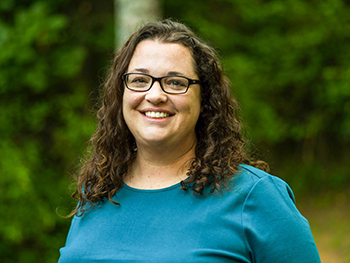About
Dr. Kristina Randall is a clinical assistant professor at Clemson University working specifically with the Clemson LIFE program. Her research focuses on increasing life outcomes for those with intellectual and developmental disabilities (IDD) through examining: (a) factors that influence quality of life; (b) interventions to increase independence, employment, and self-determination; and (c) identifying and reducing disparities in health-related interventions. Dr. Randall has been the recipient of two health- related funded grants. She and her co-PIs were awarded an NIH National Center for Advancing Translational Sciences (NCATS) Grant Number UL1TR001450 Community Engaged Scholars (CES) Program, Community-Based Participatory Research (CBPR) grant in 2021 to examine the impact of employment settings on quality of life. Most recently, she and her Co-PIs (Drs. Casey Hopkins and Dianna Gurich) were granted funding for a project titled Menstrual Knowledge and Self-Efficacy Among Young Women with Intellectual and Developmental Disabilities, through the Health Sciences Center Research Seed Grant with Prisma Health. In addition to seeking grant funding, Dr. Randall is committed to disseminating her research. She has published in many peer-reviewed national and international journals, and has presented her research at over 50 international, national, and regional conferences.
Visit Dr. Randall's Faculty Profile.
How their research is transforming health care
Girls and women with Intellectual and Developmental Disabilities (IDD) face disparities in regard to their menstrual health and hygiene due to in large part to cognitive challenges and existing social stigmas surrounding both menstruation and people with disabilities. Currently there are major gaps in knowledge among parents, teachers, and healthcare providers, and as a result, accessible, and appropriate menstrual health education for girls and women with IDD is lacking. Additionally, there is a lack of research on the influence of intellectual function and adaptive skills related to menstrual health. As a result, little is known about how disability-appropriate instruction influences reproductive health outcomes. Dr. Randall is working to address this gap in knowledge by aiming to 1) identify relationships between intelligence, adaptive behavior skills, menstrual knowledge, and menstrual self-efficacy; 2) validate measures of menstrual knowledge and menstrual self-efficacy in young women with IDD; and 3) create and evaluate the efficacy of a menstrual health and hygiene education program for young women with IDD.
Health Research Expertise Keywords
Faculty Scholar, intellectual and developmental disabilities, post-school outcomes, self-efficacy, quality of life, health disparities, disability-appropriate health interventions

